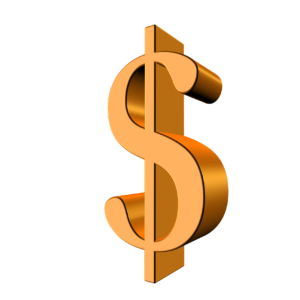Best Budgeting Apps to Track Your Finances in 2024

Introduction
In today’s fast-paced world, managing your finances efficiently is more critical than ever. With the increasing reliance on technology, budgeting apps have become essential tools for many individuals. These apps simplify financial management, allowing users to track expenses, set financial goals, and save money with ease. This article aims to help readers find the best budgeting apps for 2024.

Why You Need a Budgeting App
Track and Manage Expenses
A budgeting app helps you keep an eye on your daily expenses. It categorizes your spending, making it easier to identify areas where you can cut back.
Set Financial Goals
Setting and achieving financial goals becomes more manageable with a budgeting app. Whether you’re saving for a vacation, a new car, or retirement, these apps provide the tools to monitor your progress.
Save Money
By providing insights into your spending habits, budgeting apps help you make smarter financial decisions, ultimately saving you money.
Accessibility and Convenience
Having your financial information at your fingertips means you can quickly check your budget, track expenses, and make informed financial decisions on the go.
Key Features to Look for in a Budgeting App
- User-friendly Interface: Ease of use is crucial. A well-designed app makes managing your finances straightforward.
- Expense Tracking: The ability to categorize and track expenses is essential for effective budgeting.
- Budget Planning and Forecasting: Look for features that help with future financial planning.
- Syncing with Bank Accounts: Automatic transaction imports save time and ensure accuracy.
- Customizable Alerts and Notifications: Notifications help you avoid overspending and stay on top of your budget.
- Security: Ensure the app offers data encryption and robust security features to protect your financial information.

Best Budgeting Apps for 2024
1. Mint
Overview and History:
Mint is one of the most well-known budgeting apps, offering a comprehensive suite of financial management tools since 2006.
Key Features:
- Automatic transaction syncing
- Bill tracking
- Budget creation and alerts
Pros and Cons:
- Pros: User-friendly, comprehensive features, free to use.
- Cons: Ads can be intrusive, some syncing issues reported.
2. YNAB (You Need A Budget)
Overview and History:
YNAB is a popular app known for its zero-based budgeting approach, helping users allocate every dollar.
Key Features:
- Zero-based budgeting approach
- Goal tracking
- Educational resources
Pros and Cons:
- Pros: Excellent budgeting philosophy, strong educational content.
- Cons: Monthly fee, learning curve for new users.
3. PocketGuard
Overview and History:
PocketGuard simplifies budgeting by showing how much spendable money you have after bills and necessities.
Key Features:
- “In My Pocket” feature for remaining spendable money
- Bill tracking and budget trends
Pros and Cons:
- Pros: User-friendly, focuses on available spending money.
- Cons: Limited customization options, some features behind a paywall.
4. EveryDollar
Overview and History:
Created by Dave Ramsey, EveryDollar uses a zero-based budgeting method to help users take control of their finances.
Key Features:
- Zero-based budgeting
- Drag and drop expense tracking
- Dave Ramsey integration
Pros and Cons:
- Pros: Easy to use, integrates with Dave Ramsey’s financial teachings.
- Cons: Paid version required for bank syncing, limited free features.
5. Goodbudget
Overview and History:
Goodbudget is an envelope budgeting app, ideal for users who prefer a manual budgeting approach.
Key Features:
- Envelope budgeting method
- Web and mobile access
- Offline functionality
Pros and Cons:
- Pros: Simple to use, great for manual budgeting fans.
- Cons: Lacks automatic syncing, limited free version.
6. Personal Capital
Overview and History:
Personal Capital offers robust financial management tools, focusing on comprehensive wealth management.
Key Features:
- Comprehensive wealth management tools
- Investment tracking
- Retirement planning
Pros and Cons:
- Pros: Excellent for investment tracking, comprehensive financial tools.
- Cons: Not primarily a budgeting app, may be overwhelming for pure budgeters.
How to Choose the Right Budgeting App for You
Assess Your Financial Goals
Understand your financial needs and preferences. Are you looking to save more, track expenses, or plan investments?
Compare Features and Pricing
Evaluate the key features of each app and consider the cost. Free trials can be invaluable for assessing usability.
Read Reviews and Testimonials
Leverage user feedback and expert reviews to gauge the reliability and efficiency of the app.
Try Free Trials
Take advantage of free trials to see how each app fits your personal requirements.
Tips for Effective Use of Budgeting Apps
- Regularly Update Your Data: Ensure all transactions are recorded for accurate budgeting.
- Review Your Budget Frequently: Adjust your budget as necessary to stay on track.
- Take Advantage of Alerts and Notifications: Use these features to avoid overspending.
- Set Realistic Financial Goals: Be practical about what you can achieve.
Conclusion
Choosing the right budgeting app can significantly improve your financial health. Start using a budgeting app today to take control of your finances and achieve your financial goals in 2024.
Call to Action
What are your favorite budgeting apps? Leave a comment below and share your experience. Don’t forget to subscribe to our blog for more tips on personal finance!
You May Like
What Is AI? A Beginner’s Guide to Artificial Intelligence in 2024
How Automation’s Impacts on Everyday Life: 10 Examples
Unlocking Success: The Top 10 Benefits of Outsourcing Web Development Services
Safeguarding Our Future: The Crucial Role of Responsible AI and Ethical Technology in Society
Python 3 Conditional Statements: If, If Else and Nested If Statements